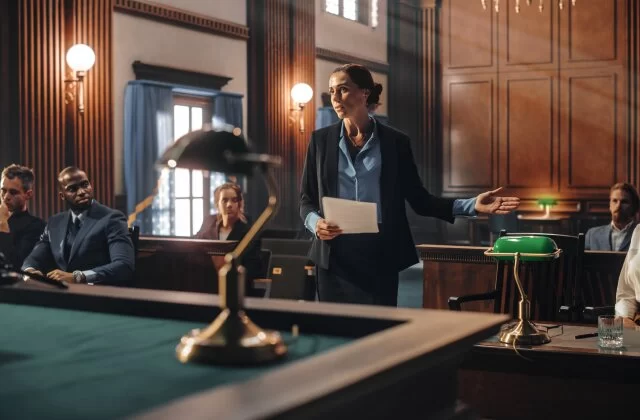The Importance of Hiring Top-Rated Lawyers for Non-Profit Legal Issues
Non-profit organizations play a vital role in shaping communities and addressing various social, cultural, and environmental issues. However, navigating the complex legal landscape that governs non-profits can be overwhelming without proper legal support. Top-rated lawyers for non-profit legal issues specialize in helping these organizations overcome legal challenges while ensuring compliance with federal and state regulations. Whether you are looking to establish a non-profit, manage its operations, or address a legal dispute, hiring the right lawyer can make all the difference.
Why Non-Profit Organizations Need Legal Support
Non-profit organizations, despite their focus on social good, face numerous legal hurdles. From incorporation to tax-exempt status, compliance with the IRS, and labor law issues, the legal framework surrounding non-profits is intricate. Without proper legal guidance, non-profits risk falling into legal traps that could threaten their operations or lead to penalties. A top-rated lawyer specializing in non-profit law can ensure that an organization is legally sound, protect its assets, and guide it through challenges like disputes with stakeholders or regulatory issues.
Take the example of a charity that faced legal trouble when it failed to meet federal requirements for maintaining its tax-exempt status. The organization’s leadership didn’t realize the importance of compliance until it received a notice from the IRS, threatening to revoke its status. The charity quickly hired a top-rated non-profit lawyer who helped them resolve the issue by filing the necessary paperwork and negotiating with the IRS. This scenario illustrates how legal counsel is essential for non-profits to avoid costly mistakes.
The Role of Top-Rated Lawyers for Non-Profit Legal Issues
Top-rated lawyers for non-profit legal issues handle a variety of tasks that are crucial to the success of non-profit organizations. These professionals are well-versed in the unique challenges faced by non-profits and provide services that include:
- Incorporation and Formation: Lawyers help non-profits navigate the process of incorporation, ensuring they meet the legal requirements to operate as a nonprofit entity.
- Obtaining Tax-Exempt Status: Securing 501(c)(3) status from the IRS is a key step for many non-profits. Lawyers ensure that the organization complies with the necessary paperwork and regulations to obtain and maintain tax-exempt status.
- Governance and Compliance: Non-profit organizations must adhere to specific governance rules, including bylaws, board structure, and financial reporting. Lawyers help organizations draft governing documents and provide ongoing compliance advice.
- Fundraising and Grant Compliance: Non-profits rely on donations and grants for funding. Lawyers ensure that fundraising activities comply with state and federal laws to prevent legal issues.
- Contract Negotiation and Drafting: Whether it's a partnership agreement or a service contract, non-profit organizations require legal assistance to draft and review contracts to protect their interests.
- Dispute Resolution: Lawyers help resolve disputes between stakeholders, board members, employees, or other organizations, helping to avoid costly litigation and protect the organization’s reputation.
Common Legal Issues Faced by Non-Profits
1. Obtaining and Maintaining Tax-Exempt Status
One of the primary concerns for non-profits is maintaining their tax-exempt status. To qualify for tax-exempt status under section 501(c)(3) of the Internal Revenue Code, a non-profit must meet certain conditions, such as being organized for charitable, educational, or religious purposes. Failing to maintain compliance with IRS regulations can result in the loss of this crucial status. Top-rated non-profit lawyers ensure that organizations stay in good standing with the IRS by assisting with tax filings and advising on necessary changes to organizational structure or activities.
2. Employment and Labor Law Compliance
Non-profits, like any other organization, must comply with federal and state employment laws. This includes ensuring that employees are properly classified, adhering to wage and hour laws, and maintaining non-discriminatory practices. Non-profit lawyers help organizations navigate employment contracts, employee benefits, and resolve labor disputes that may arise with staff or volunteers.
3. Fundraising Compliance and Donor Restrictions
Fundraising is the lifeblood of most non-profit organizations. However, many states have specific laws governing charitable solicitation. Non-profits must comply with state fundraising regulations, including registration requirements, disclosure rules, and reporting obligations. A top-rated lawyer ensures that a non-profit's fundraising efforts align with legal standards and that the organization adheres to donor restrictions in accordance with agreements.
4. Contracts and Partnerships
Non-profits often collaborate with other organizations, government entities, or private companies. These collaborations require carefully drafted contracts to ensure that each party’s obligations and rights are clearly defined. A non-profit lawyer can help negotiate, draft, and review partnership agreements, vendor contracts, and collaboration terms to protect the organization’s interests and mitigate potential risks.
5. Liability and Risk Management
Non-profits must consider the potential liabilities they may face, especially if they are involved in public service or community work. Lawyers specializing in non-profit law can help with risk management strategies, such as obtaining appropriate insurance and ensuring that the organization’s activities do not expose it to unnecessary legal risks.
How to Choose the Best Lawyer for Non-Profit Legal Issues
1. Experience with Non-Profit Law
When selecting a lawyer for non-profit legal issues, it’s essential to choose someone with experience in the field. Non-profit law is a niche area of practice, and a lawyer who has worked with various non-profit organizations will be familiar with the specific challenges these entities face. Look for attorneys who specialize in non-profit organizations, charity law, or related fields.
2. Knowledge of Federal and State Regulations
Non-profit law is governed by both federal and state regulations, so it’s important to find a lawyer who has a strong understanding of the legal landscape in your state, as well as federal law. A top-rated non-profit lawyer will be well-versed in the intricacies of 501(c)(3) status, fundraising laws, employment regulations, and more.
3. Reputation and References
When choosing a lawyer for your non-profit, reputation matters. Look for lawyers with positive client feedback and strong recommendations from other non-profit leaders. Ask for references from other non-profit organizations or check online reviews to gauge the lawyer's ability to handle similar cases effectively.
4. Cost and Billing Structure
While non-profits typically have limited budgets, it’s crucial to invest in quality legal counsel. Most non-profit lawyers offer flexible billing structures, including flat fees or discounted rates for non-profits. Before hiring, discuss the lawyer's fees and billing arrangements to ensure that they fit within your organization's budget.
5. Communication and Responsiveness
Effective communication is essential when dealing with legal issues. Choose a lawyer who is responsive to your needs, listens to your concerns, and is clear in explaining complex legal concepts. Non-profits often need timely advice, so a lawyer who is readily available can help you avoid unnecessary delays in decision-making.
Real-Life Example: A Non-Profit’s Legal Journey
Consider the case of "Hope for Tomorrow," a non-profit that provides educational support to underprivileged children. The organization was initially founded with a small group of volunteers and had been operating informally. However, as they grew, they needed to formalize their structure and apply for 501(c)(3) tax-exempt status. The founders hired a top-rated non-profit lawyer who helped them navigate the process of incorporation, obtaining tax-exempt status, and drafting bylaws. Later, when the organization entered into a partnership with a local school district, the lawyer helped negotiate the terms of the agreement and ensure compliance with relevant laws. With legal support, "Hope for Tomorrow" continues to thrive and expand its impact.


 peter shapiro lawyer
peter shapiro lawyer david golden attorney
david golden attorney reston law group
reston law group sean malloy attorney
sean malloy attorney bringardner injury law firm
bringardner injury law firm begley carlin and mandio
begley carlin and mandio